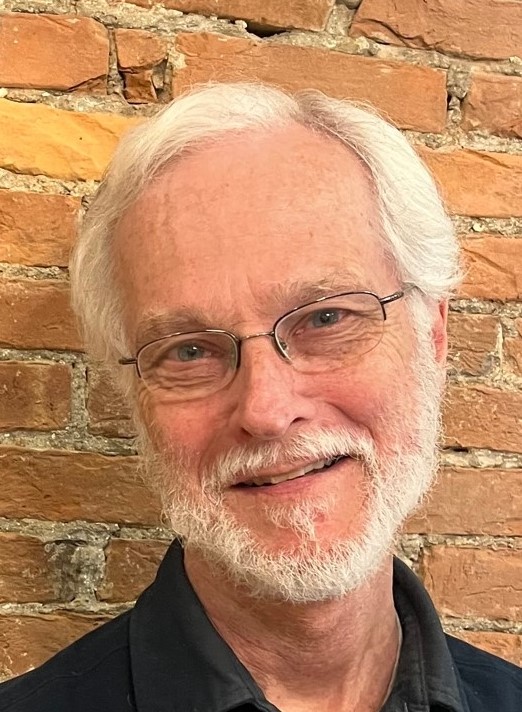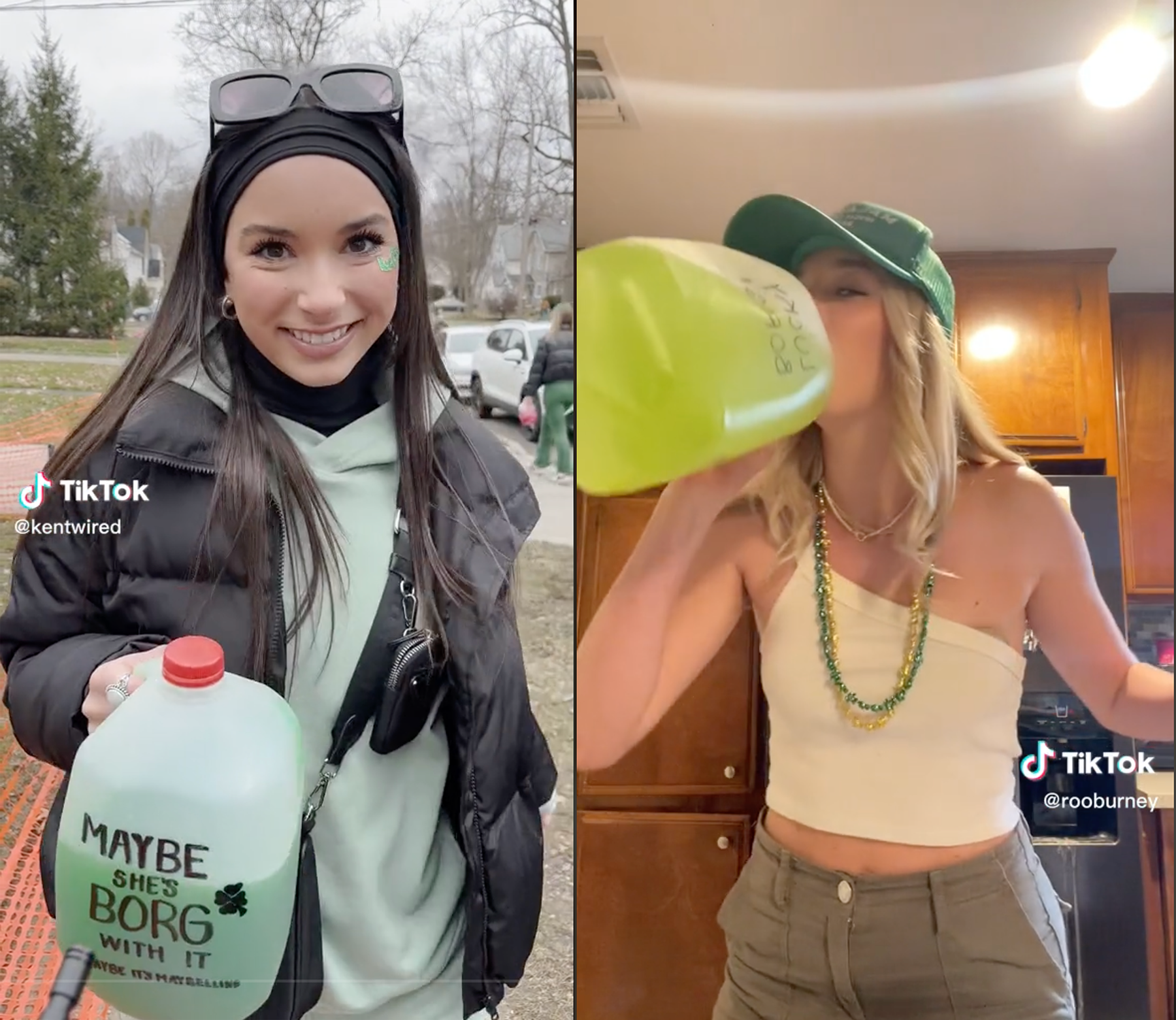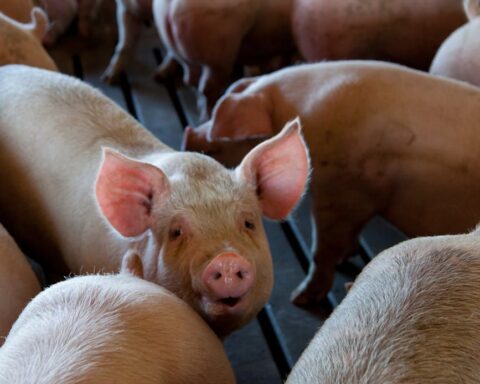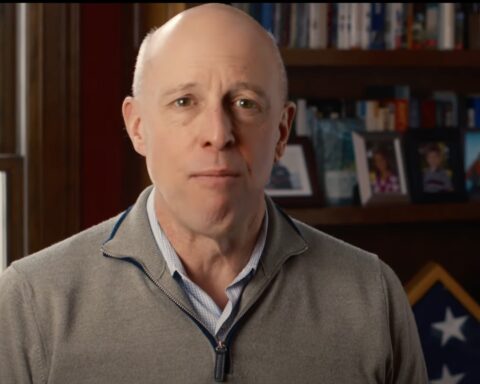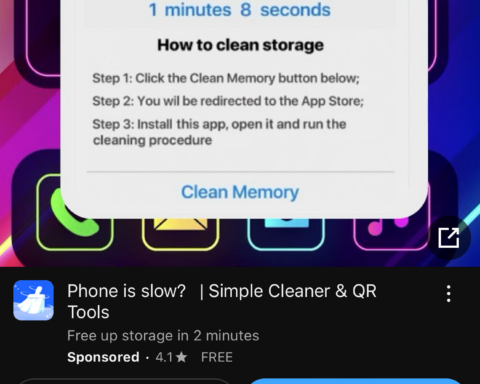Podcast (top-left-corner): Play in new window | Download
Editor’s Note: Stephanie Boyd declined to provide either a photo or short bio.
Top Left Corner: This is the top left corner right here on The Greylock Glass GreylockGlass.com, the Berkshires mightiest independent alternative news thing. I’m your host, Jay Velázquez. And as always, it’s a pleasure to have you with us. Thanks for tuning in to this episode of The Top Left Corner. It’s episode 181. Can you believe it? And today is Monday, May 8th, 2023. On this episode, we are continuing our very short series of interviews with the candidates for the Williamstown Select Board. The election is is Tuesday, May 9th tomorrow. So I guess it’s good that we’ve only got two out of the four candidates because that means you have plenty of time to listen. The candidates are Stephanie Boyd, Andy Bryant, Andy Hoagland and Paul Harsh. Paul Harsch neglected to get back to me. So we’re not going to be hearing from him. Andy Bryant did respond to me via Facebook, but at the time she had dropped out of the race due to a death in the family, which of course, everybody understands. But she has since decided to rejoin the race but did not get back to us about this interview. She did about a five minute statement that you can catch on willing net. So by all means, go listen to that. So we basically had Andy Hoagland last episode, and today we have Stephanie Boyd, who declined to provide a photo and bio after repeated requests. So if you don’t know what she looks like, you’re going to have to Google it because I’m not running photos or bios that are not sent to me directly or as part of an EPC electronic press kit. I like to do things professionally when I can, when I’m not, you know, flying by the seat of my pants.
Top Left Corner: But I guess this time it just didn’t work out for me. So Google, if you need to know what Stephanie Boyd looks like, Google it. I’ll put a link to her campaign page as well. So that’s about it. All I can say is listen to these episodes and I hope it helps you make some decisions about who you want representing you on the select board. With that, let’s get right to that conversation with Stephanie Boyd here on the top left corner.
2023 Annual Town Meeting Warrant
Don’t forget — Elections are only half the fun! The Town will meet at Mount Greylock Regional School, 1781 Cold Spring Road, on Tuesday, May 16, 2023 at 7:00 p.m. to decide on a bunch of issues. Which issues? Why, they’re listed in this PDF of the Warrant we’ve so thoughtfully provided!
BIO: STEPHANIE BOYD (none submitted)
ROUGH TRANSCRIPT of the INTERVIEW with Top Left Corner: Thank you so much for coming on the top left corner, Stephanie.
Stephanie Boyd: Oh, well, good morning, Jason. Thanks so much for having me. I’m looking forward to our conversation.
Top Left Corner: Well, it’s been a while, I think. I think we actually spoke many years ago about pottery, so this is probably about 70 years after that. So it’s good to talk to you again on the show. Thank you. So you I’m going to give you first a chance to just sort of tell us, you know, why you’ve decided to run. You could you could certainly have peace and quiet in your studio and not be bothered by the cares and concerns of Williamstown politics. Why did you decide to jump in?
Stephanie Boyd: Well, as you mentioned, I’ve been on the planning board for a while, for about five years, and that term is coming to an end. And I think my experience on the planning board, living in Williamstown for 20 years, I just feel that I have something that I could probably offer this town. I’ve become more and more intrigued with the issues of our town, and I’d like to be involved with making it a more welcoming community and seeing what I can do to help make it better.
Top Left Corner: What would you say are the areas top three strengths and what would you say are three areas you’d like to see improvement?
Stephanie Boyd: Top three strengths in Williamstown.
Top Left Corner: Yes.
Stephanie Boyd: Okay. Oh, well. I mean, the first thing top of mind is a beautiful community in many ways. Both the people are wonderful and our physical environment is so nice. I just came back from a coffee meeting out at Five Corners in the southern part of town, and it’s just such a delight to see the sun shining and our hills and it’s a really great place and I love working with and spending time with the people that live here. Um, I think that we have a lot of people who care about each other and care about the issues in the world. So it’s really great to have conversations with people and to work on projects with people in town. Um, we live in an area of the country. I think that is a nice place to be. Um, so on the weaknesses side, let’s see, I think. We inadvertently possibly are not as open to. A wide variety of people, diversity living here. And when I say inadvertently, it’s because I think housing costs and the type of housing that we have here limits who can live in this town. We lack employment. You know, over the years, males have disappeared. Hospitals have reduced their services. And so it’s difficult for people to live and and work here. And I’m not coming up with a third weakness. I think those those are I think in general in the world, we are also working on how do we become more welcoming to diverse populations. And we’re just trying to figure out what that means in our community now.
Top Left Corner: Okay. Well, I, I guess we’ll talk about growth first, because this is something that you’ve actually addressed on your your own website. And since we are on that topic now, what is how do people get to to your website? What’s the address?
Stephanie Boyd: Yeah, I put together a little website to share some of my ideas. It’s easy to find just WW w Stephanie boyd.net no spaces or anything.
Top Left Corner: Okay so and we’ll repeat that at the end the the idea of growth is on a lot of people’s minds. We see it going on everywhere around us and various factors have limited the amount and types of growth here in Williamstown for for a long time. Um. I think that no one would argue that we can use a little more of this or that, whether it’s commercial, residential or industrial, But there isn’t a lot of widespread agreement on the best way to do that. Why don’t you give us your take on what. A sustainable growth plan would include.
Stephanie Boyd: I’m glad you used the word sustainable growth. Growth is such an interesting term because I think when we say it, we all think we understand each other and what that means. But even if you just look at town planning, what are we talking about in terms of growth? Is it is it more houses? Is it more people? Is it more expensive buildings? So it can mean a number of different things. And also if we look. Worldwide, our economy has been based on on growth. And we feel that we are not making progress unless there’s growth in the GDP, etcetera. On the other hand, this continual growth has severe impacts on our planet where we’re running out of fossil fuels, we are contaminating the air, we are causing greenhouse gases and planetary climate change. So there are problems with growth. But if we come back to Williamstown, what what are we looking at? I think we possibly need to have a different kind of development in town. We have limited through our zoning, etcetera, that housing developments are, for the most part, single family homes on relatively large lots, and that is really not serving us today. People have different lifestyles.
Stephanie Boyd: We’d like to have a diversity of housing types. It’s expensive. People can’t afford to build new single family homes on large lots. And so I think we need to allow a different type of housing development in town to provide the housing needs for our community going forward. We’d love to see more commercial development. As I mentioned earlier, we just don’t have really much of an economic base in Williamstown or major employers, Williams College, which is really great to have our town anchored in a in an institution that has such stability and longevity. But I think we need more of a variety of commercial development. So I think we also need to protect our environmental and agricultural resources so that area farms, we’ve been losing farmland not only in Williamstown but across the state and and the nation. And we really need to work to protect and maintain them, let alone have a growth in that industry. It would be actually fascinating and I think helpful to our economy to help farms develop in what types of products and services they could offer. I would love to see some growth in agritourism, etcetera.
Top Left Corner: And I have I have read about and actually witnessed some of the, you know, public private partnerships and, and, you know, grant programs, community, you know, grant programs that have allowed farms to take advantage of, say, the, as you said, agritourism is a is a booming industry. I first heard about it many years ago. I have a small farm out in Franklin County and I have had a website where I advertise grass fed beef and somebody drove all the way from Boston because he and his wife, they spend their weekends visiting small farms around the Northeast. That’s their that’s their fun. Some people do antiquing. Yeah, they do agritourism and they go and they bring a cooler and they they shop and they, you know, they talk to, they take pictures. They were hoping that I had maybe a bed and breakfast. I did not. But, you know, at the end of the day, they bought almost $200 worth of beef just because because I was able to reach people who were interested in sustainable local agriculture. So, yeah, I think there’s definitely a market for that. I do want to use that as a pivot point for a somewhat controversial. Zoning change, proposed land use change you have supported decreased frontage, road frontage, size lots and also. And also multiple units on lots like apartments, for example. Now, I can certainly see how this could be a good thing.
Top Left Corner: And as some have pointed out, maybe that could even be a way that farmers could have, you know, help staying right there legally living on their farms. I do have this interesting perspective, though. Ever since starting to drive Uber to support The Greylock Glass, I drive usually until one 2:00 in the morning from about 2:00 in the afternoon. I drive all over the Northeast. I drive to Boston, I drive up into Vermont, I drive to Connecticut, I drive to Albany. And you know what I see in the former pastures of farms on the outskirts of towns, everywhere I see little apartment farms. They are chopped up, former farmland with apartment units that look kind of like like triplexes. And they’re just pup, pup, pup, pup, pup, pup, pup. No trees, no landscaping. Just just little parcels with apartments, apartment facilities, you know, like I said, duplexes, triplexes. And they are taking up farmland forever because you’re never going to reclaim that farmland because it’s cheaper to build new than it is to restore. It’s cheaper to build new on the outskirts of town than it is to try to build up, you know, maybe in in in town. So what would you say to and I’ve had guests on the show before that are concerned about that exact thing that what it will do will be a good idea, perhaps abused in the hands of for profit developers.
Stephanie Boyd: So you are right. We do. The planning board is bringing a couple of warrant articles related to housing to town meeting next month. One of them or two actually have to do with allowing multi-unit housing by right three unit and or four unit. There’ll be two separate articles, but we are not. We are only proposing those for general residents. So that’s the more densely populated area of Williamstown, not on the farmland. That’s called general residence in our zoning parlance. So that would not be an allowed use in on the farm, on the farms. So we do think that in town, in Williamstown, there is a shortage of apartments or condo like buildings that are attractive to a number of different groups, young professionals, people who can’t afford a large house. And now even seniors who no longer need a large house with their empty nest, etcetera. So it’s a housing type that we do not have enough of in Williamstown and that there is a demand for. So that’s why the planning Board is proposing those, but not to allow it to, you know, encourage loss of even more farmland. Well, I’m sorry.
Top Left Corner: Go ahead. Sorry. No, I’m just so glad that you cleared that up. I was not up to speed on that that stipulation. So go ahead.
Stephanie Boyd: We are proposing a housing type, though, that we would allow in the rural areas. So another interesting article we have is allowing manufactured housing, formerly known as mobile housing, on any building lot within Williamstown. So in the GR the general residence area or in the rural areas currently you could only have manufactured or mobile home in a manufactured home community and we see that that could possibly be a really good use in the rural areas where you may have a farming family that is rich in land but not so rich in cash, and the grown kids want to stay on the farm. And this would be an inexpensive way to allow that to happen because manufactured housing are substantially cheaper.
Top Left Corner: I have not heard of many topics that generate the NIMBY not in my backyard response from people like like mobile homes. I know that at least one of your opponents in this race is dead set against this. What do you tell people who say that it’s going to bring down the the character or the the value of Williamstown?
Stephanie Boyd: Well, I’d first like to comment on an erroneous statement that that was made recently that affordable that manufactured housing decreases in value. I mean, people have that idea that it happens, but studies show that in fact, they increase in value very similarly to stick built homes. Okay. So yeah, so I wanted to correct that. So bring down house values. You know, I’m I’m not sure we have any evidence that that happened. Manufactured housing is very similar to any, you know, modest kind of bungalow type housing. We. You know, there’s a I think many people would like to see efforts to support affordable housing in Williamstown and in other communities. And we only have so many mechanisms that we can do that we can provide subsidized housing that we pay for out of our taxes, municipal and and state. We have programs such as Habitat for Humanity that are essentially subsidized with free labor through people who volunteer to build those homes and low interest loans. And then we have the ability to oh, there’s also some tax programs where you can collect a surcharge off of real estate sales and use that money to help fund affordable housing. But by allowing this type of housing, manufactured housing is really a way that we can provide a path to homeownership without having to pay for it out of our tax revenue. So so, you know, I haven’t seen evidence that it brings down House values. And I think it’s really a great opportunity for us to help people live in our community.
Top Left Corner: Well, it is the case that you can’t both ask the question, why can we not get any help, any. Why can’t we fill these positions in the service industry and also say, but we don’t want them living here. You know, we don’t want people we don’t want the same groups of people who would be filling those jobs. And I’m not trying to blunt this at all, as you can tell. You know, we if there is to be a service sector, which is primarily what we have in Williamstown, if not for the college, then people have to be able to afford to live here. You know, and that’s just the case.
Stephanie Boyd: I can appreciate when people are concerned about their house values For for many of us, one of our major assets is is our house. And we want to be very careful about anything that may threaten the value of that. So it’s completely understandable when a new idea comes up that people go, Hey, you know, what’s going to happen? I think we also sometimes have a tendency to overly exaggerate or overly worry about what what may transpire and how that might affect us. So, yeah, I have found the people of Williamstown, after some thought and reflection, realized, yeah, this this is something that we need to do to support our our neighbors.
Top Left Corner: Now, I want to use this as, again, sort of a pivot point because you talked in one of your pieces, one of your essays about potentially finding ways to make it easier for seniors who are homeowners in the town to stay in their houses. I don’t want to talk exactly about that, but I want to I want to shift that to the seniors who are not homeowners. We have, as you know, both Highland Woods, which is the newest, you know, project for primarily seniors and disabled residents, and also, of course, Proprietors Field, which has been around for a long time. Those house dozens of seniors who are not homeowners. It’s a little bit of a different situation than, say, Shelburne Falls has a similar community, except it’s owned and operated by the Shelburne Falls Housing Authority, which does some interesting things which actually creates some interesting differences. Did you know, for example, that once you’ve been in Highland Woods for a year and this is it’s a private corporation, it is not a non you know, it’s not like a charity. It’s not any sort of charitable or government run organization that runs Highland Woods. Once you’ve been a resident, it switches you to month to month status and those seniors end up. Living at the whim of the management. Unlike at in Shelburne Falls senior living community, they’re not allowed to form a tenants union. I mean, they could form one, but they’re not recognized by law. If you if your property, if you’re living in a housing authority unit, you have the right to form a tenants union and you must be recognized here in Williamstown.
Top Left Corner: Those seniors do not have that right. And leases can change month to month and they’re individual. So each tenant could conceivably have a slightly different lease. And it also means that when you sign that lease, you are agreeing that the terms of that lease can change anytime with or without your permission. So what happens is they decide that somebody in one of their properties in Pittsfield scorched the side of his house with a, you know, a grill, you know, outside. Nobody can have grills. Somebody trips over a walker in the hallway. Nobody can have a walker in the hallway. Somebody doesn’t like the way some chaise lounge looks outside. No one can have lawn furniture that stays outside. It is a highly authoritative state, and they don’t even follow their own rules. Did you know that it claims to be a nonsmoking community yet they built a smoking shelter outside and people continued to smoke in the units. I am personally offended and and shocked at the number of seniors who are actually living in conditions that are they’re almost punitive. I mean, it’s almost carceral. Um, have you have you have you talked with the seniors who are living in these housing or have you talked with seniors in general? Because that’s the one thing I find lacking in every single candidates platform, a real discussion about a huge population and a growing population here in Williamstown.
Stephanie Boyd: Well, we should have had this interview next week because I do I do plan on talking with the with the folks at Proprietors Field next next week. But I and I recently was just involved with an issue at Sweetwood another um, independent assisted living facility in Williamstown where the owner of that property was wanting to change the zoning so that they could potentially rent to non seniors and have a multi-generational facility up there. So I did start to learn a little bit more about the month to month type of renting situation, etcetera. I do. I’m also, as you know, working on the comprehensive plan for Williamstown. And I recognize that seniors are a significant percentage of our population. We you know, we have this kind of large group of people, 55 and over, and they’re a very important part of our population. And I think the needs of seniors are changing over time. I was just reading about the Boston Marathon where, you know, the 75 year old woman just, you know, had an incredible pace doing that race. So we we have seniors that have a variety of different needs and different health issues and different housing needs. And it is extremely important. And we will be working through some of those issues on the comprehensive plan. And then part of my goal is for for running for the select board is to be there on the ground ready to start implementing the the actions that we put in our comprehensive plan. Sure.
Top Left Corner: Sure.
Stephanie Boyd: I completely hear what you’re saying. I have heard some of those issues that you have cited, what to do about them. I don’t have an answer at the moment, but it will certainly be top of mind.
Top Left Corner: Well, it’s a quality of life question. I mean, to me, it’s a quality of life question where it is not acceptable to just shuffle people off and treat them like like, like toddlers. Right? You know, you just don’t get to do that. You know, not with people who have put in their time, in many cases, served their country overseas in many cases served their countries at home. You know, there are teachers who are living in senior houses. There are, you know, town administrators who are now living in senior housing. They’ve put in their time. They’ve made their contributions. I would say, as you pointed out, you mentioned that 75 year old in the Boston Marathon. Um, you know, I have seen senior centers all over the country where there are there’s fitness equipment and there’s pools and there’s outdoor fitness parks that are specially designed for seniors that have, you know, equipment that is allows them to do like step exercises and things like that. Um, our senior center is, you know, it’s we have one it’s a bit skimpy, I would say. And the Council on Aging is also well, it’s, it’s hard to say their names on the town.
Top Left Corner: Website, but the only contact information is for Brian O’Grady, who is the director of the Senior center. And he’s also the contact for the Council on Aging, which seems odd since the senior center director is supposed to answer to the Council on Aging. So I’m not really sure that the transparency is what we’d like it to be on that issue. So I would just like to see I would like to see a heck of a lot more done for seniors. And I wonder if you would commit to looking into expanding. Obviously, you can’t do everything, but I would like to see I would like to get a commitment that you will look into expanding the facilities available for seniors because, as you said, not everyone is just sitting around not I shouldn’t say just not everyone is sitting around just being sedentary, doing, you know, stereotypically senior things. Some people do want exercise. Some people are able to run a mile or a marathon. And I just feel like we need a commitment from the town leadership that the seniors are not going to be forgotten once again for an entire term.
Stephanie Boyd: You know, I think what I can commit to is. Looking out for all of our vulnerable populations. Yeah, that’s.
Top Left Corner: Not the question, though, Stephanie. It’s not the question. I’m a journalist. I’m not here. I’m not a I’m not a cheerleader. I’m a I’m asking the question, can you commit to at least looking into what’s available to the seniors now and recommending improvements?
Stephanie Boyd: So I can actually tell you that we are looking into that. So as I mentioned, one of the things that I’m working on is the comprehensive plan, which is a look into all of the needs of our community, including seniors. We are looking into what are the facilities needed in our community for seniors, for young people, for low income people, for diverse populations, so that the.
Top Left Corner: So that so that plan comes out in June.
Stephanie Boyd: It was originally intended to be in June. We’re going to take a little bit more time, probably early, early fall.
Top Left Corner: And so there will be recommendations in that on what to do with the senior center.
Stephanie Boyd: There will be. So we by law, you’re mandated every so often to do what the state calls a master plan. We’re calling it comprehensive plan. And they we have to look at public facilities. So our senior center is a public facility so that I’ll.
Top Left Corner: Let you off the hook.
Stephanie Boyd: For that.
Top Left Corner: But I’ll be I’ll be definitely I’ll be definitely looking into the finalized version of that plan. I do want to move on, though, because we have very little time left. My last question is, is really about climate. Well, I mean, I would love to have more questions, but we got to keep this, you know. Well, the other end of the spectrum is going to be youth. And I don’t think we’re going to have time to talk about the youth population. But I do want to talk about climate because that affects everybody. Um, there are towns that are conducting climate ready, you know, climate mitigation plans and climate readiness plans. Um, I am not aware that Williamstown has the sort of robust climate investigation that some other towns have. I could be wrong about that. But what we know is that like most small towns, we have a fairly understaffed, under-resourced fire department. We know that we are expecting just an awful, dangerous fire season this year. We know that there are people who are moving here, looking to move here from the city who do not want to be sitting through another hurricane that hits, you know, New York or Boston. And they’re looking to move to safer places like the Berkshires. We don’t have the medical staff to deal with the influx of people that are potentially expected to be moving inland.
Top Left Corner: And we don’t have the housing. Um, you know, obviously if we have more units per acre that could be good. But then again, it could end up just being expensive housing for people who are looking to relocate from, you know, grossly expensive areas like, you know, Manhattan. Um, so I’m just wondering, you know, and then of course, with the farming issue, you, you’ve really made me very happy that you’re concerned about preserving agricultural land. But we have this situation where we’re not going to be able to necessarily depend on other parts of the country and world for food. We already know, for example, that Ukraine, which produces more wheat than anybody, but the United States has had a real tough time getting its wheat to market, causing worldwide shortages. We don’t have the luxury of thinking that we can live this provincial life that is unaffected, untouched by what’s going on in the rest of the world, particularly as it relates to climate change. What do you know about Williamstown Williamstown’s readiness to adapt and to make long term plans, and what would you recommend that Williamstown do to make long term plans to address the climate crisis?
Stephanie Boyd: Okay, that was a long question.
Top Left Corner: So I like I like to give you the exact context.
Stephanie Boyd: Thanks. Thanks. So a couple of years, two years ago, I think Williamstown voted in a net zero resolution at town meeting. So we are committed as a community to reducing our greenhouse gas emissions. Since that time, the school committee, of which I’m a part, has been working to bring together community members to craft a net zero plan. How do we reduce our greenhouse gas emissions in town? Nancy Nyland is working right now to. Put together a grant proposal to green communities to get some funding to help with some of our efforts there. We’ve been working with Berkshire Regional Planning on putting together that plan, and so that is moving forward. We’ve also had studies with the Berkshire Regional Planning on climate resilience, like what do we need to do to improve some of our infrastructure such as culverts and whatnot, to help with potential flooding? So there’s that. The new fire station is in a sense, a an effort that will contribute to our ability to be prepared in in the sense of emergency. So there is definitely more that we can always do. But I think we do have some really significant efforts underway with some really great people doing the work.
Top Left Corner: Mm Well, I think that certainly on a global level, you know, trying to be net, you know, carbon neutral is great. You know, net zero is great. I think that’s, that’s good. As part of a broader effort and nationwide. Worldwide, I’m not sure. I don’t know I guess I’d have to check take a look at what the Berkshire regional planning’s documents look like. I, I think I have seen other towns in Massachusetts that are taking sort of a more. Well, a more intensive look at the specific things that could fail. I mean, really, when you’re designing any system, you don’t you design the system and then you ask what will fail? Culverts, flooding, all those things. Yes, for sure. I think that none of us actually are. There is no town that is fully prepared and we’re all going to be learning, learning as we go. I just feel like we have the resources. We have this college that actually has a great science program and I would love to I would love to see the town maybe work together with Williams if if that’s possible, to maybe do a study, much like on Cape, the Massachusetts Maritime Academy, which works hand in hand with FEMA and MEMA, has produced climate resiliency studies with various towns on on Cape. So they have a, you know, sort of a federal slash, academic slash municipal partnership going to come up with really comprehensive plans. I’d love you to see it because it’s it’s it’s intense. They really have covered all the bases. And, you know, the students were doing it as a yearlong project. So it was really intensive. Right.
Stephanie Boyd: I mean, in many ways, I think the impacts on the on the Cape to climate change could be worse because of their proximity to to the oceans. I certainly I found it very interesting, you know, during the dark period of the pandemic, how grateful I was that we had local food supplies here and also. It was interesting to see how many people were coming to Williamstown to either spend time on our trails or coming to work here from other parts of the country because it was just, you know, better to be here during a pandemic. So I think all of those things have given us insights into what may happen when we have like climate crisis in our country. And yeah, I alluded to some work that was being done more towards working to prevent climate change from happening, which clearly. We are going to have little success.
Top Left Corner: Well, I mean, if everybody yeah, if everybody had a cool committee, then we’d be we’d be in much better shape. Not everybody is even recognizing that the danger and you’re correct, there are certain there are certain hazards to living in a coastal community that are different than ours. But for example, Cape Cod has a huge amount of freshwater. A lot of people don’t realize how many, how many lakes and ponds there are, so they actually have no shortage of freshwater. The Berkshires is entering its seventh year of drought. Seventh year of drought and we are not going to be able to make up for the losses of last year with the paltry rain that we’ve had. So if we do increase amounts of of units, for example, more people relying on the public water supply, more people drilling wells, our hazard to climate change might be that we run out of fresh water. You know, so everybody every everybody has every area has its own and unique and special risks that they have to confront. So, yeah.
Stephanie Boyd: Williamstown is interesting that our water supply comes from a deep aquifer, so that probably. Slows down when we’ll be impacted on shortage of water supplies. But if we’re surrounded by communities that are using surface waters, of course what happens around us to our neighbors will then impact us. Because what are all part of one community?
Top Left Corner: What a what a complicated little machine this planet is, isn’t it? Yes.
Stephanie Boyd: And we’ve done a good job of making a mess of it.
Top Left Corner: So let’s talk I just want to give you the final word here, because I know there are some things that I did not ask that you would probably like the the voters to know some of the things that we haven’t covered. What should the voting public of Williamstown know about you and your bid to to land this seat for for one term or more.
Stephanie Boyd: Um, probably more. Personal things on how I tackle issues. I am really dedicated to making Williamstown a better community. I approach problems or issues from as many different angles as I can. I talk to people, I try to get all the perspectives and I’m just really willing to dig in. And I really just love helping people and helping our community grow to its full potential. So I think that’s the message that I would love to give people, that I’m here for them and I will do my best to make this a place they would like it to be.
Top Left Corner: Excellent. Excellent. I think that most people, if you ask them what’s important in a candidate, the answer is usually that they have to actually care. They want authenticity and they want genuine concern for the community. And I would say you embody the concern and the sort of community spirit. The way I would say all of the candidates do in each in their own way. And so I think that it’s great that we have people stepping up. I read all the time about towns that have so many unfilled seats, even at the select board and city council level. And it makes me sort of sad that civic engagement is so low. But here in Williamstown, we seem to be doing okay, although there are a few few empty seats here and there. But but better than many places. So once again, give us your contact, your email or your your website address.
Stephanie Boyd: Okay. You can reach me and find out what I think about things at W-w-w dot Stephanie boyd.net. And there’ll be a field there that you can send me an email. So I would love to hear from you and I hope you all have a great day.
Top Left Corner: Stephanie Thank you so very much for being on the show and and being so thoughtful in your answers. I’m looking forward to to interviewing the rest of the candidates, lining them up and making them available to the public. Hopefully next week, hopefully next Tuesday, Wednesday and Thursday is what I’m shooting for. So we’ll get to hear them all then. Until then, have a great weekend. Enjoy the weather and we’ll talk to you soon.
Stephanie Boyd: Okay. Thank you so much, Jason. Thanks.
Top Left Corner: Bye bye.
Stephanie Boyd: Bye.


